Ray Charles – In Person
This is one I picked up just a couple of years ago, at Deep Groove Records here in Phoenixville. I’ll be honest — given naming conventions of the ’50s and ’60s, I didn’t necessarily expect that this would actually be a live performance. (See: “The Beatles in Italy,” for example.) And even if it were, I didn’t expect much from it because those early live recordings were often nothing great. Both technology and experience just weren’t there, and a lot of live performances at venues from that time period are underwhelming, from a sound perspective.
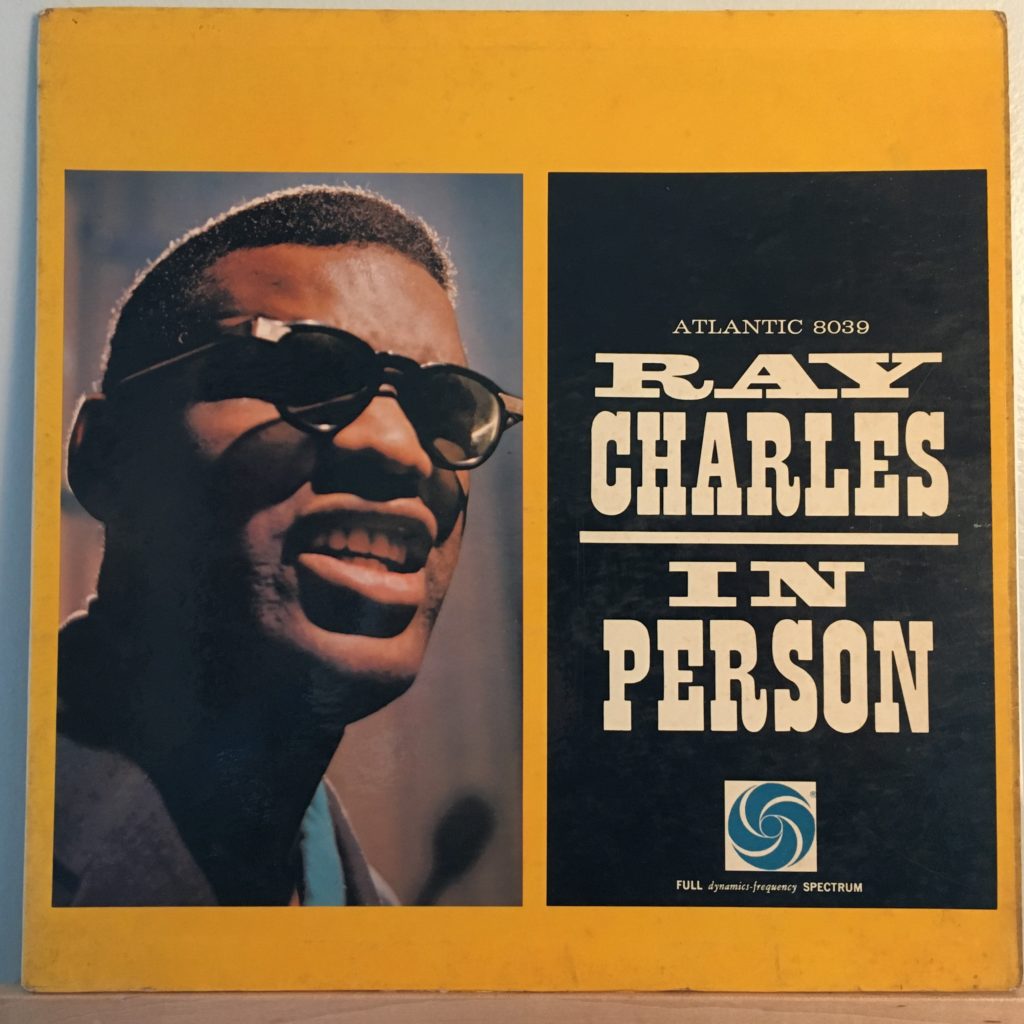
This, however, is surprisingly awesome. Recorded in 1959 and released in 1960, this was recorded live in Atlanta, with Ray in the midst of a 12-act show that had included Ruth Brown, The Drifters, Jimmy Reed, B.B. King and more. It’s hard to understand how it turned out as well as it did — the show was recorded by a disk jockey for the radio station that was sponsoring the show, from the audience, with a single microphone. If you listen to it, that seems absolutely impossible. The sound is amazing for the time. As for the music — it’s everything: swinging, jazzy, and sounding fresh 60 years later.
(I got to see Ray Charles in person maybe 10 times; unfortunately, this was not one of those times, on accounta my not having been born.)
Let’s pause just a second and consider Ray Charles. Born into the most meager of circumstances, abandoned by his father, blind by the age of seven . . . but with a gift for mechanics and a talent for piano, and a mother who was determined he would have a chance that was not likely to be available to a blind black child. She got him into a school for the deaf and blind, where his gifts were amplified. It seem impossible to imagine the world he came up in, the barriers he faced just because of his race, let alone his blindness, to imagine what he faced in a music industry that was far from equitable to black artists, in a time when traveling as a black man was difficult, even hazardous. He played for bands, did arrangements, took long overnight lounge shifts, form a band, and started recording. It took a while but eventually he got the attention of Ahmet Ertegun at Atlantic, and it all started happening. His career covered blues, r ’n’ b, gospel, soul, country, jazz and more, and he achieved crossover success like none before or since. The hits stopped coming in the ’60s and ’70s, but it seemed in the ’80s he started to slide into well-deserved legend status. Most of his later albums were hit or miss, but he went out with a tremendous hit, “Genius Loves Company,” released just after his death and featuring duets with pretty much everybody. It went to number 1 on the charts, won eight Grammy awards, and was a worthy final achievement. There was no one else like Ray Charles.
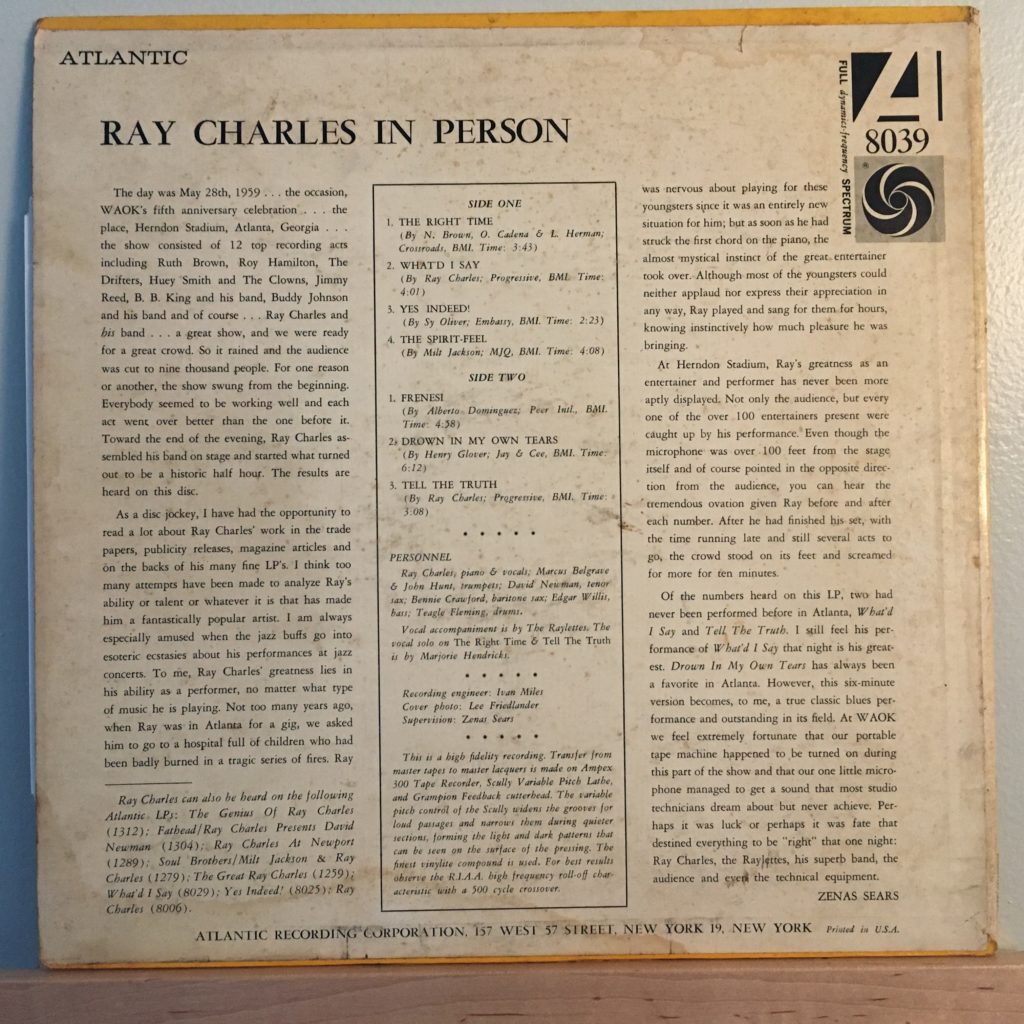
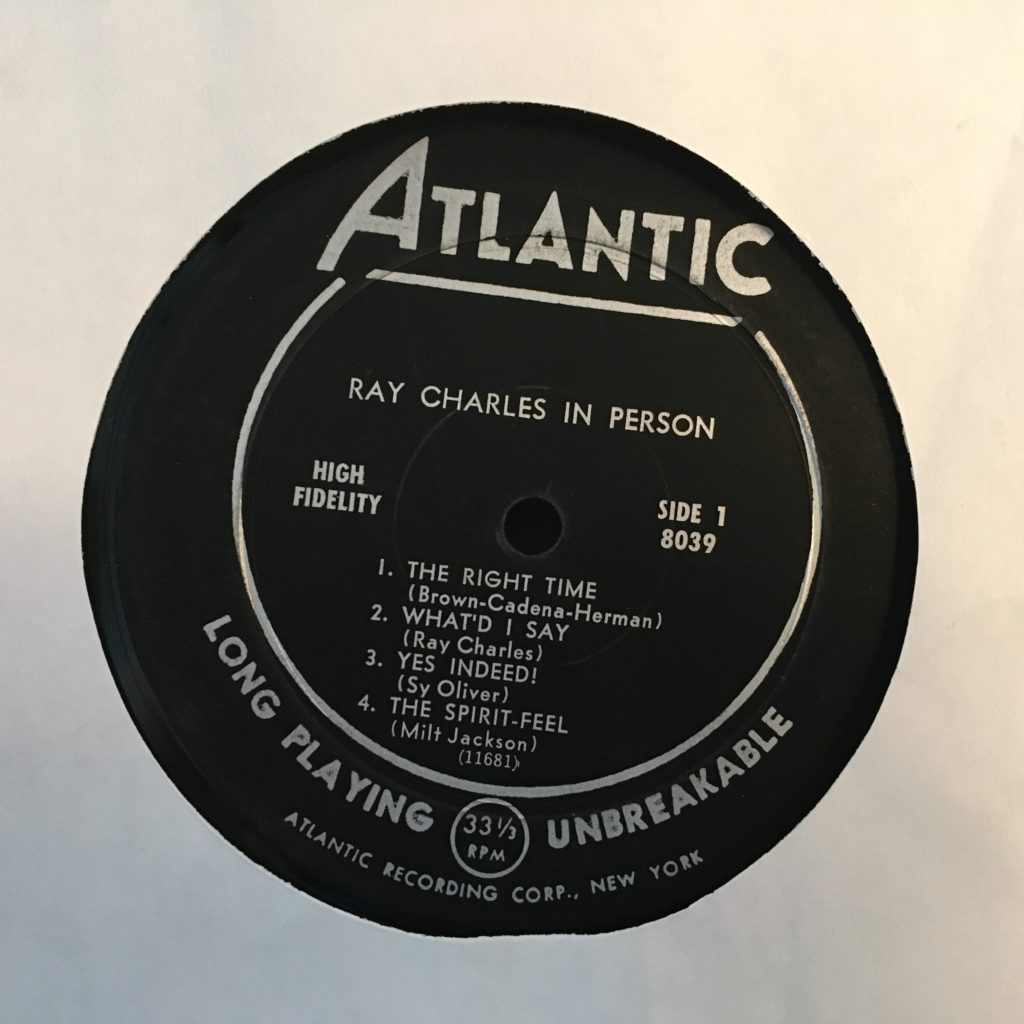
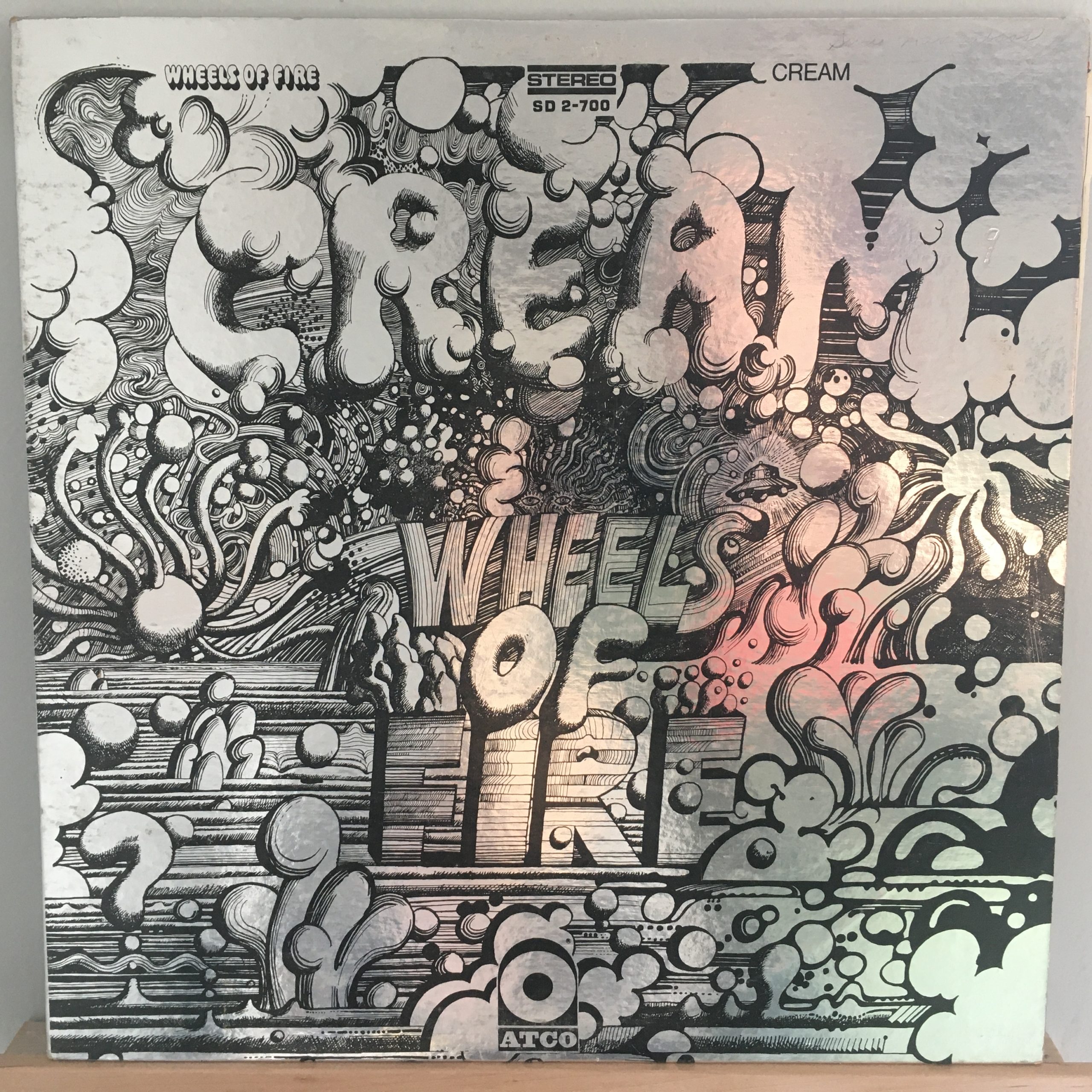
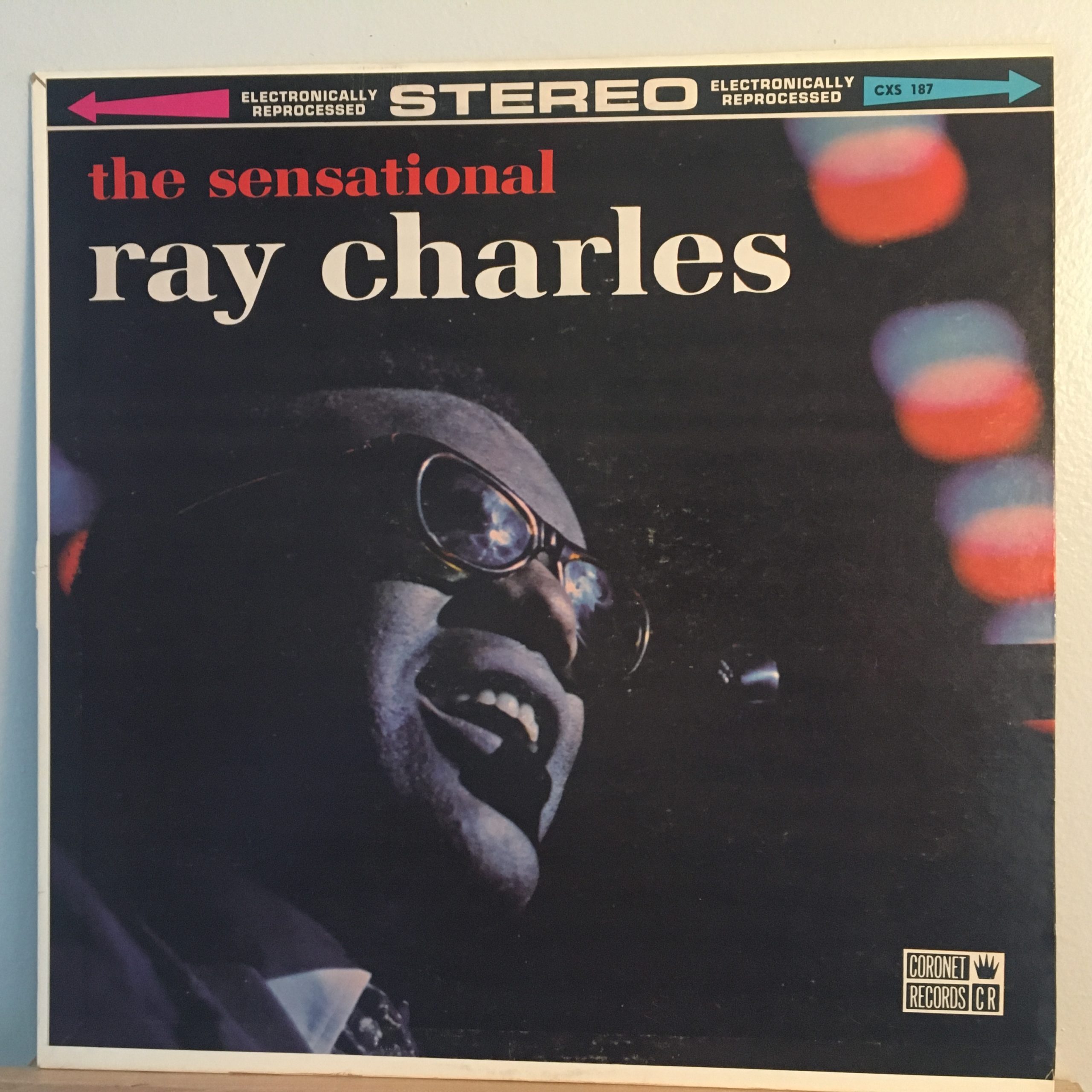
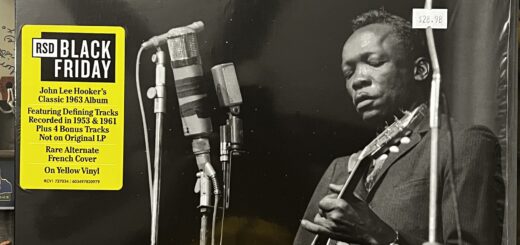
Things We Said Today